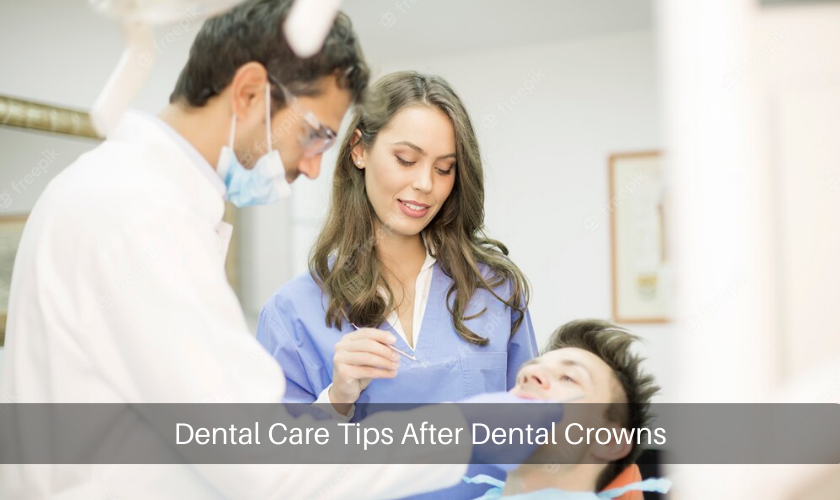
Dental crowns are one of the most effective treatments for restoring the natural strength and beauty of your smile. But, just like with any other dental procedure, it’s important to take good care of your crown in order to maintain your dental health. Here are some tips on how to properly care for your dental crowns after they are placed.
Dental crowns are an extremely effective treatment for restoring the strength and beauty of your smile. In order for them to be most successful, however, it is important that you take good care of them after they are placed. From proper brushing techniques to maintaining a healthy diet, here are some tips on how to best care for your dental crowns.
It is important to use a soft-bristled toothbrush when brushing your teeth and crowns. Hard-bristled brushes can damage the outer layer of your crowns, leading to them becoming dull and discolored. When brushing, use gentle strokes to clean the outer and inner surfaces of your crowns.
It is important to replace your toothbrush every three months or whenever the bristles become frayed. This will help ensure that your toothbrush is in good condition and free from bacteria, which can cause damage to your crowns.
Using a toothpaste that contains fluoride is important for keeping your crowns strong and protected from decay. Fluoride helps to prevent cavities by strengthening the enamel of your crowns and keeping them safe from bacteria.
Using dental floss that is specifically designed for crowns is important. Dental floss designed for crowns is gentler on your teeth, which will help to protect your crowns from chipping or cracking.
Flossing too aggressively can cause damage to your crowns. When flossing, be sure to use gentle strokes and avoid putting too much pressure on the gums near your crowns.
It is important to use waxed floss when flossing around crowns. Waxed floss will help to ensure that there is no fraying or snagging of the floss, which can cause damage to your crowns.
Sticky foods, such as candy and gum, can cause damage to your crowns as they may stick to them. It is best to avoid eating these types of foods in order to keep your crowns in good condition.
It is important to limit your intake of sugary foods and drinks as these can lead to tooth decay. If you do consume sugary items, it is important to brush your teeth and crowns afterwards in order to keep them clean and protected.
Chewing on hard objects, such as pens or fingernails, can cause damage to your crowns. Avoid chewing on any hard items in order to keep your crowns in good condition.
Q: How often should I replace my toothbrush?
A: It is recommended to replace your toothbrush every three months or whenever the bristles become frayed.
Q: Can I use regular dental floss for my crowns?
A: It is best to use dental floss that is specifically designed for crowns. Regular dental floss can be too rough and may cause damage to your crowns.
Q: Are there certain foods or drinks I should avoid?
A: It is best to avoid sticky foods, such as candy and gum, as these can stick to your crowns. It is also important to limit your intake of sugary foods and drinks in order to protect your crowns from decay.
Taking good care of your dental crowns is essential for keeping them strong and healthy. It is important to use proper brushing and flossing techniques, as well as maintain a healthy diet and avoid habits which can be damaging to your crowns. By following these tips, you can ensure that your crowns remain in excellent condition for years to come.